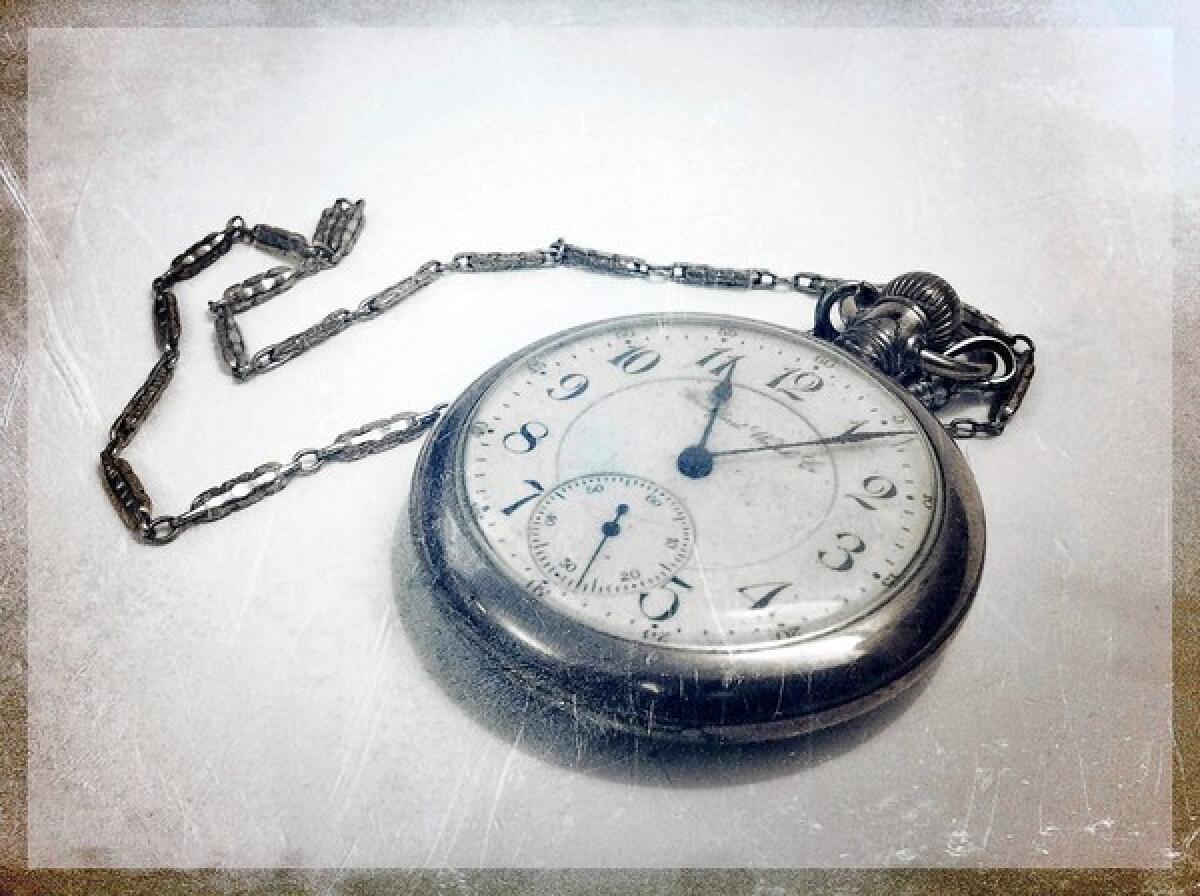First Look: ‘The Still Point’ by Amy Sackville

- Share via
The Still Point
A Novel
Amy Sackville
Counterpoint: 307 pp., $25
Many novels explore the sliding planes, the archaeology of past, present and future and the still points where the fabric of time is rent and characters slip through. This is a lot to juggle, especially in a debut novel, but Amy Sackville pulls it off — thrillingly, seductively, dreamily. Not only do all the moving parts hold together, but a new fictional voice emerges here as well; not harsh, brash and shiny, not overly self-conscious and sentimental — somewhere between the calm beauty we expect from novels that invoke Victorian England and the raw edges of modern life.
Julia is the great-grand-niece of a famous explorer, Edward Mackley, who disappeared on an expedition to the North Pole at the turn of the 20th century. Mackley’s young wife, Emily, waited decades for his return, but his body, found holding her photograph, was not uncovered until 1959, when Emily was 81. Julia and her husband, Simon, live in what was once Emily’s Victorian home in the country. Julia spends her days wandering through rooms, remembering her own childhood in them, curating her great-grand-uncle’s papers, journals and ephemera in the hopes of solidifying his reputation and the value of the house as well. She sifts through drawers, labels boxes and tries to create the narrative thread of the expedition.
Simon commutes to the city, where he works as an architect. His marriage to Julia has forced him under the shadow of the great myth as well. The vaguely unhappy couple dream separately of the Arctic — Julia’s days are rich journeys into the subconscious as she imagines Emily’s life and the experience of her great-uncle; Simon dreams of bloody whales and feels uncomfortable in his own skin.
Every object in the house and her ancestor’s archive is invested with the power to re-create the past: “a silver filigreed pocket watch, looted from Edward’s grave, now waiting to be accounted for among the miscellany on the floor in the attic; but as it is irreparably broken and will not be wound, it cannot tell what hours have passed.” Back in the past, “They sailed on; the sea thickened and slicked into an undulating, elastic transparency before graying and turning to rubble.” In Julia’s dreaming of the expedition, Edward, who has set off with a group of men from the ice-bound ship to get help, is surrounded by emptiness as, one by one, his companions die. “I set out now upon the ice in my mind and draw near it,” he writes to Emily, “my mind is as wide and clear as the white plain before me. Boundless, edgeless. The still point will come to meet me. Grace, all around me. I am nearing it. Circling. It is beautiful yet, this terrible place….”
Lives interlock like pieces in a puzzle, around a glass, a vase, a broken plate, a charm, a photo. “Can a life be composed of other men’s accounts, diaries, journals, notebooks, newspapers and relics of a wrecked expedition any more than it can of — for the sake of argument — a concerto, a dead pheasant, a cat in the garden, a trace of lipstick, the taste of vine tomatoes, of aniseed, a lily?” Julia’s reconstruction of the journey is riveting; her revelations about Emily’s life shocking and the writing, gorgeous. It is a remarkable debut.
Salter Reynolds is a Los Angeles writer.
More to Read
Sign up for our Book Club newsletter
Get the latest news, events and more from the Los Angeles Times Book Club, and help us get L.A. reading and talking.
You may occasionally receive promotional content from the Los Angeles Times.








